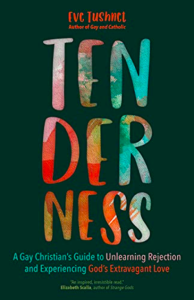I hope it’s clear, then, that I think we all ought to take the Side A better-to-marry-than-to-burn argument seriously. Dismissing it is callous or complacent, not a mark of holy wisdom.
But I also don’t think this argument really says what my Side A friends think it does. I see two major problems with this line of thinking.

1. All of us believe that there are certain sexual impulses that people just have to say ‘No’ to, no matter what. This is not in itself an argument against Side A theology; but it does seem to me like an argument against interpreting I Corinthians 7 in this specific way. Surely what St Paul is doing is giving a common-sense solution to a commonplace sexual problem—not defining that solution as the answer to every sexual problem. Some impulses, like the polygamous impulse, are actually essentially incompatible with the very solution St Paul proposes. (1) This is a guideline, not a metaphysic, and it doesn’t cover every case.
It’s very uncomfortable to suggest that there may be moral problems with no tidy solution. It’s also a fact. That’s what the strange, disquieting books of Job and Ecclesiastes are in the Bible for. There’s nothing less tidy than a crucifixion.
2. People aren’t always celibate because their beliefs or desires prompt them to be. Put bluntly, incels are a thing. Hell, so are teenagers—the fact that a 14 year old probably only has to wait, through several years of grueling struggle with appetite, doesn’t do anything about his burning desire right now. If the solution to desire is marriage, and somebody isn’t able to find a willing person to be their spouse, or is for some other reason in no position to get married … then what? Has the Church failed them? Has God? Are they owed a spouse?
To be clear, I don’t for a moment suppose my Side A friends would say anything like this. But it does seem to me like a natural conclusion of this specific understanding of St Paul. The argument, that It is better to marry than to burn implies gay marriage, only works if marriage is the solution to persistent sexual desire. If not, then the fact that gay men and lesbians can’t normally avail ourselves of this advice is just one of the exceptions that we should kind of expect to a rule of thumb.
Or, God’s apostle is defining a solution which God himself isn’t ponying up for. And that’s at least as big a problem as the problem this interpretation was supposed to solve.

All of this dovetails rather with the talk Johanna Finnegan gave at Revoice this year, where she contrasted two ‘churches of glory’ with the ‘church of the cross.’ I’ll discuss that parallel in my next.
(1) I’m aware there are Christians who advocate polyamorous relationships: in substance, a return to polygamy. I don’t think that either the New Testament or the subsequent tradition of the Church give the smallest support for this; but I think even a polyamorous Christian would assent that, for instance, the impulse to chase the sexual thrill of cheating (however that’s defined in their context) is simply wrong. In any case, I think most of my Side A friends do believe in monogamy.
Images via Pixabay
















